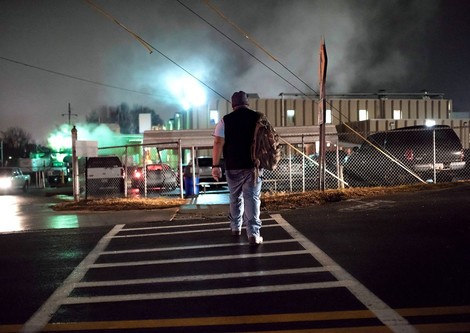Your podcast discovery platform
Curious minds select the most fascinating podcasts from around the world. Discover hand-piqd audio recommendations on your favorite topics.

piqer for: piqd Boom and bust Climate and Environment Global finds Globalization and politics Health and Sanity Technology and society Doing Good Deep Dives
Malia Politzer is the executive editor of piqd.com, and an award-winning long-form journalist based out of Spain. She specializes in reporting on migration, international development, human rights issues and investigative reporting.
Originally from California, she's lived in China, Spain, Mexico and India, and reported from various countries in Africa, Europe and the Middle East. Her primary beats relate to immigration, economics and international development. She has published articles in Huffington Post Highline, The Economist, The Wall Street Journal, Vogue India, Mint, Far Eastern Economic Review, Foreign Policy, Reason Magazine, and the Phoenix New Times. She is also a regular contributor to Devex.
Her Huffington Post Highline series, "The 21st Century Gold Rush" won awards from the National Association of Magazine Editors, Overseas Press Club, and American Society of Newspaper Editors. She's also won multiple awards for feature writing in India and the United States.
Her reporting has been supported by the Pulitzer Center on Crisis Reporting, The Institute For Current World Affairs, and the Global Migration Grant.
Degrees include a BA from Hampshire College and MS from Columbia University Graduate School of Journalism, where was a Stabile Fellow at the Center for Investigative Journalism.
Undocumented Immigrant Slaughterhouse Cleaners Risk Their Lives With No Hope Of Workers Comp
This Businessweek feature continues the tradition of Upton Sinclair's The Jungle of putting a magnifying glass on how meat and poultry producers are outsourcing some of the riskiest work – such as maintenance and cleaning – to outside companies, thus relieving themselves of liability.
However, many of those companies are primarily staffing undocumented workers, who are often not protected by any kind of insurance program. Take, for example, the case of "Martha", a maintenance worker at a factory owned by Tyson chicken, who lost her balance while attempting to clean and mangled her arm, resulting in permanent nerve damage and "9% whole person impairment", according to the doctor who evaluated her. A documented worker covered by workers comp would have been entitled to up to $150,000 payout. Instead Martha was summarily fired, and disappeared.
This is not a one-time occurrence: Journalists Waldman and Malhrotria write that like Upton Sinclair's "The Jungle", the racial component of the unspeakable worker conditions in the meatpacking industries is back.
Almost 30 percent of the nation’s half-million meat and poultry workers are foreign-born noncitizens, compared with 10 percent of manufacturing workers overall, according to the U.S. Bureau of Labor Statistics. More than a third of meatpacking workers are Hispanic. The proportion of sanitation employees who are immigrants isn’t tracked, but many workers and industry executives estimate it’s the vast majority in many places.
They also cut corners – knowing that undocumented workers almost never join unions – for safety. Take this court filing by a company, in a suit with the widow of a worker who was killed after being pulled into a meat grinder he was trying to clean:
“DCS managers knew it was possible to clean the machines without turning them on,” Interstate argues in a court filing, in a rare burst of industry candor, “but they believed doing so would not make financial sense.”
Stay up to date – with a newsletter from your channel on Boom and bust.
